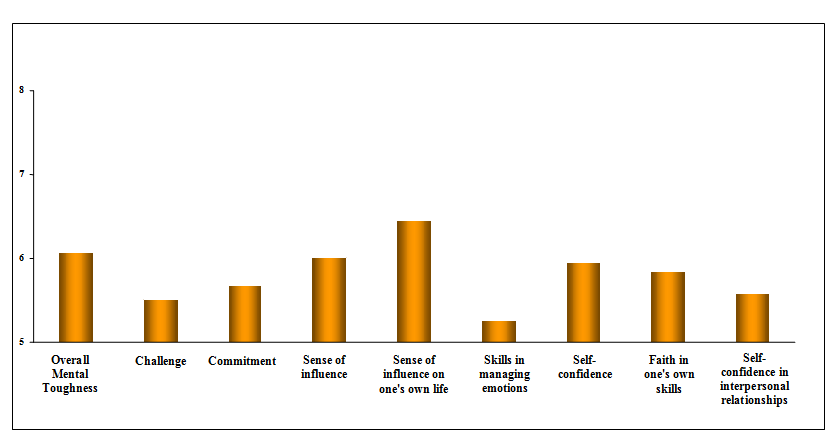Mental toughness of Polish employees - What distinguishes Polish employees and what they are looking in emigration?
Katarzyna Kloskowska - Kustosz
A study on the overall mental toughness of Polish employees was conducted on a sample of 433 people from 50 organisations. The selection of the sample had an intentionally-random nature. In the first group were selected large and medium-sized enterprises with Polish and foreign capital to whom were sent invitations to the study. Then, within the selected organisation, participants volunteered to take part in the study, while their full anonymity was assured in the results of the study. The average number of participants from one organization was 10 persons.
The study covered persons working in different industries and in various positions. The composition of the study sample in positions held was as follows: directors – 12%, managers – 19%, trainers – 3%, regular employees – 46% and students – 20%. The most represented industries were: 33% – finance, banks and insurance, 6% – chemistry and cosmetics, 5% – automotive, IT, energy and FMCG.
The presented study has a continuous character, therefore the presented results should be considered as an output, which is the basis for further observation and analysis.
The results obtained were clearly differentiated both at the level of the overall strength and mental toughness as well as at the level of the factors which compose it.

Chart 1 Results of overall mental toughness and factors influencing it in Poland
Source: 4business&people Sp. z o.o. own work
The results obtained in Poland indicate that the strongest side of Poles is their sense of influence on their own lives – a result of 6.4. Polish employees feel that they are able to create their lives and environment to suit their needs. They have a strong need to control a situation, they are able to deal with and manage several things at the same time. Very rarely do they recognize that situations simply "happen". They do not wait for others, they just take matters into their own hands, by acting. Their self-confidence also helps them in this, and in particular faith in their own skills. This is a very important attitude, contributing to business development and success.
The weakest result of Polish employees was noted in the area of managing emotions - 5.3. This could mean that in difficult situations it may be harder for them to control their emotions and not follow them in making decisions.
The relatively low approach to challenges indicates that Polish employees feel much better in a known, predictable environment. Perhaps this is due to the fatigue of continuing change, which undoubtedly in Poland is plentiful. The inflow of young Poles to the UK may indicate that Poles are going there in search for an environment which will give them stability. And when they find such an environment, with their high sense of influence on their lives and situations, they feel at home.
